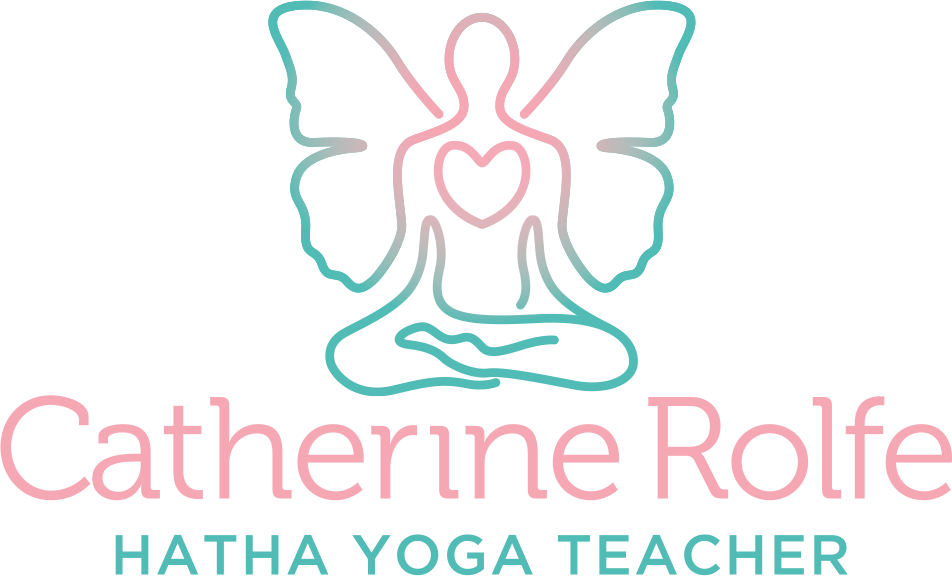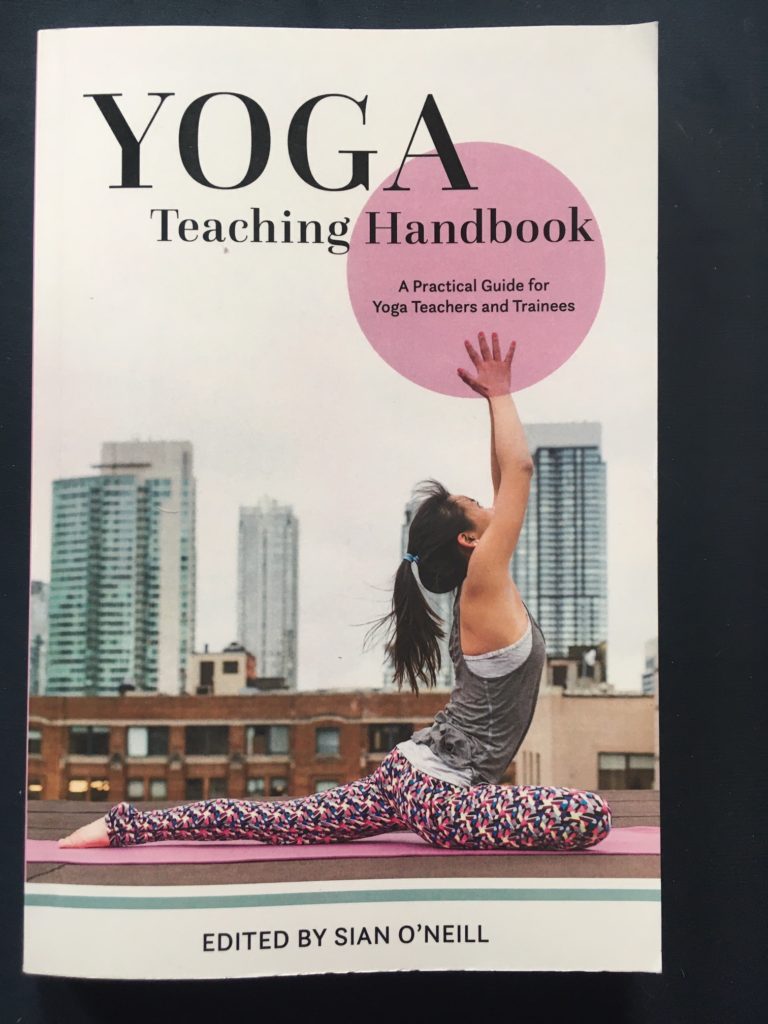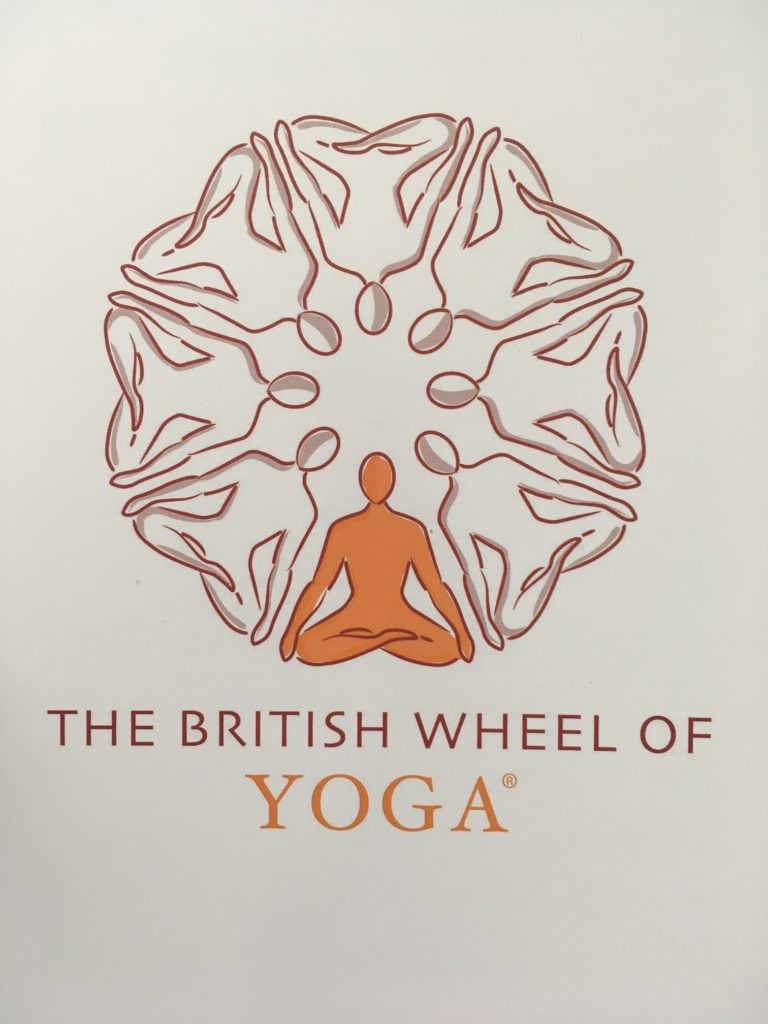When you decide to take a Yoga class, whether online or face-to-face, to some degree you are putting yourself in your teacher’s hands. And as Yoga is a holistic practice, it is your whole self – mind, body and soul – that you bring to the class, it makes sense that you want your teacher to be someone you can feel safe with and trust. But have you ever been curious to find out more about your teacher and their training? What does a Yoga teacher need to know so that they can guide you in such a way that you can enjoy a safe, sustainable, and nourishing Yoga practice?
There are many different Yoga training providers offering teaching qualifications. I qualified with the British Wheel of Yoga, known as the BWY. The BWY is the largest Yoga organisation in the UK and the governing body for Yoga under Sport England.
For my training, I started with the BWY Foundation Course 1, before moving onto the BWY 500 hours teaching qualification, which I completed in early 2020. My training took just over two years and covered the many subjects a Yoga teacher needs to know to lead safe and effective classes. This includes topics as varied as: anatomy and physiology, safeguarding, teaching techniques, GDPR, considerations for pregnant and post-natal students and those with common medical conditions, risk assessing venues and of course the many aspects of Yoga – its history and philosophical background, asana (postures), pranayama (breathing practices), relaxation techniques, meditation, kriya (cleansing practices), mudras (gestures) and chanting.
To gain my qualification, I had to complete written assignments, observed teaching assessments, first aid training and minimum requirements of class teaching and personal practice time, including sustained periods of personal pranayama and meditation practice. All assessments were quality assured by the BWY.
Does all of this make for a good Yoga teacher, one that you would be happy to have as your guide through your practice? As renowned teacher and author Donna Farhi points out, rigorous training ‘is the most reliable means we have for establishing and maintaining a standard within the profession, but it is no guarantee (just as a medical licence is no guarantee) that the practitioner will be a good one.’ So in addition to their certification, what else might you want to know about your Yoga teacher?
Some of this will depend on what you want to get from your Yoga practice and there are certainly many styles of classes to choose from. But to borrow from Farhi again, here are some suggested starting questions you might ask yourself when selecting a teacher:
- Have they had a sound and thorough training for a sustained period of time in the practices they wish to teach?
- Did their training provide education about the history of Yoga, its philosophical foundations and its various types?
- Are their classes safe, skilfully sequenced and enjoyable?
- Do they present the physical practices of Yoga as part of the larger context of Yoga as a holistic practice?
- Do they have an affinity for and love of teaching?
Further questions I would also urge you to ask yourself about any Yoga teacher you practice with, are those put forward by Uma Dinsmore-Tuli PhD. Uma is currently leading Yoni Shakti: The Movement, which aims to ‘dismantle harmful structures and beliefs that create conditions for the abuse of power in yoga teacher-student dynamics.’ More information on this important work can be found in the links below.
Hopefully, you now know a little more about what a yoga teacher needs to know and what you might want to know about your teachers. To finish with the words of teacher Lizzie Lasater, completing a teacher training program, ‘is little more than an invitation to begin to learn how to teach Yoga. It is an early step in a lifelong journey.’ BWY teachers commit to completing annual continuing professional development requirements, but this is just part of that lifelong journey, a journey that also includes commitment to sustained personal practice and inquiry. From this can grow ever evolving and reflective teaching which places the student at its centre.
© Catherine Rolfe Hatha Yoga Teacher 2020
I hope you found this blog post useful. Here are some links for further reading on this subject:






This is very interesting and thought provoking. It makes me think how much more we should value our teachers – yoga teachers and other teachers who we need to put our trust in to allow ourselves opportunities to grow.